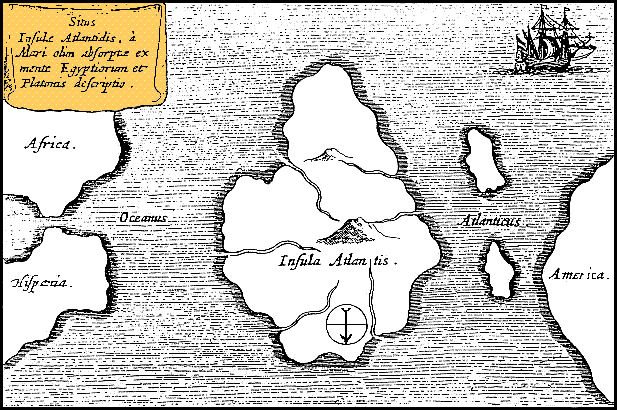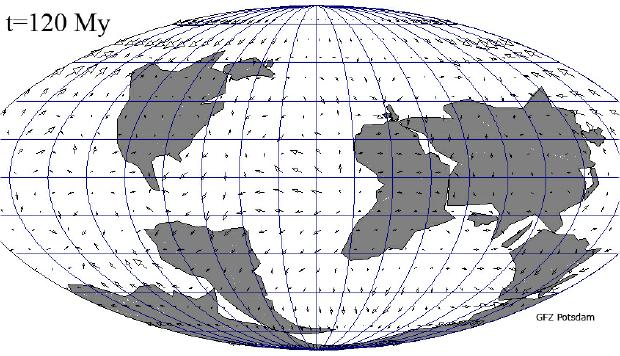Really, when you had Plato creating your press releases that is to be expected. Who doesn't want to find a city of gold and Poseidon hanging around? The man knew how to turn a phrase.
Marine geologists working in the Rio Grande Elevation, in water 5,900 feet deep 1,800 miles from the Brazilian shore, say they have found the remains of a lost continent and they excitedly rushed to call it Brazilian Atlantis, with CGI pictures of cities and everything, despite there not being any evidence of people, much less elephants or a deity with a trident. And isn't it sort of out of place way over near South America?

Atlantis had computer graphics too? They had to be aliens! Credit and link: Daily Beast
Maybe not. In Timaeus, Plato said Atlantis was a giant island, bigger than Libya and Asia Minor together, and had a naval power that conquered Europe and Africa somewhere around 9,600 BC. Naturally, when they went up against mighty Athens, Atlantis they sank into the ocean "in a single day and night of misfortune."
If it was that big, early sea travel might have been possible.
Athanasius Kircher was wise enough to stick Atlantis in the middle of the Atlantic in his Map of Atlantis (North is at the bottom - don't ask why. Our oddly-configured, not-to-scale globe is an ongoing dispute about Euro-centric elitism) though it still looks difficult to send fleets. Sure, we know some people got lucky making that crossing, but not enough to conquer Europe.

Credit and link: Wikipedia
What made them think above-water Atlantis continent instead of ocean floor?
“We expected to find volcanic rock and debris, typical of a seabed, not granite. Granite is typically found on the continental shelf,” Roberto Ventura Santos, head of the Brazilian Geological Service, told Mac Margolis of The Daily Beast.

Rock on the seabed of the Alto Rio Grande elevation. Credit: Brazilian Geological Service. Link: DailyBeast
That sounds like it could have been a continent - but it's not really a surprise to the public, we all accept continental drift and that continents and mountains have risen and fallen a lot, even in the last 200 million years or so. We don't really need CGI of Greek statues to think it's interesting.
Given what we know about the shifting nature of things, what might Earth look like in another 120 million years or so? Here you go:

Lemurians and Avalonians have to be a little jealous that Atlantis is still getting all this attention - and making it into my blog. But when all you have is Philip Sclater and Geoffrey of Monmouth writing about you while Atlantis got Plato, you're going to be second string.





Comments